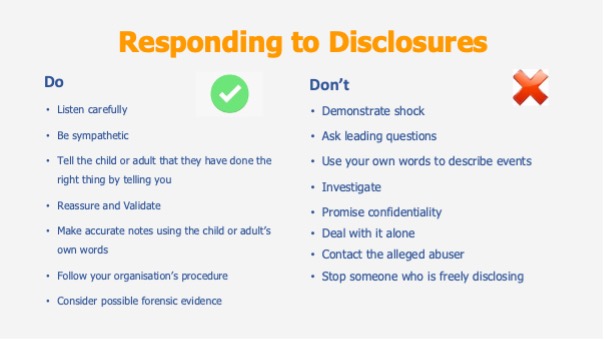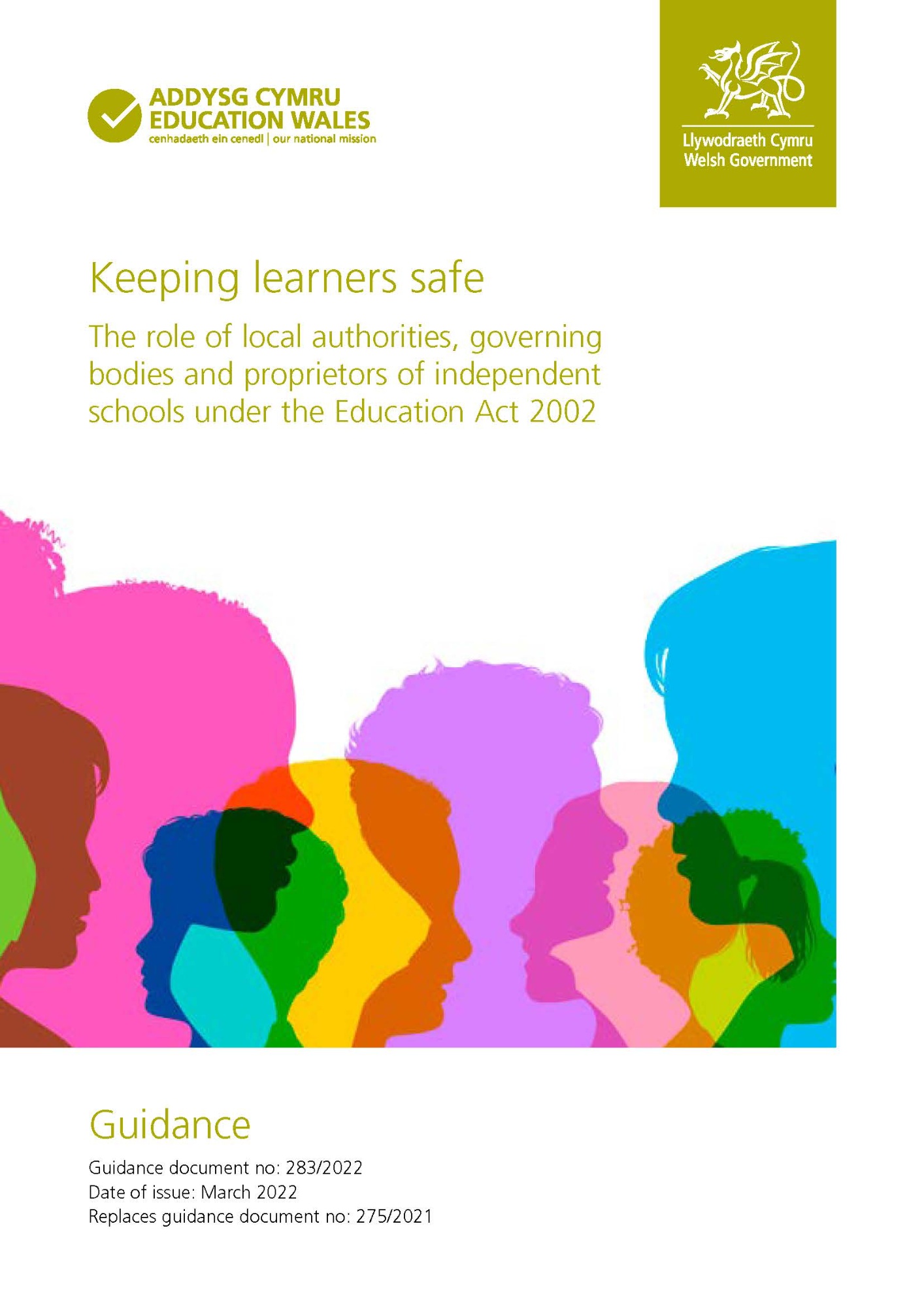Safeguarding
SJHS Safeguarding Team
 |
 |
 |
|
Mrs K Burke Assistant Headteacher |
Mr T Seghiri |
Mr T Nunn Assistant Headteacher Wellbeing Lead |
|
If you have any concerns about a child or an adult, report to your designated member of staff or Mrs L Holder (Reception) who will be able to locate the Designated Safeguarding Lead (DSL) straight away: Mrs K Burke, Assistant Headteacher (DSL). If Mrs K Burke is unavailable, please contact DO NOT DELAY. REPORT YOUR CONCERN IMMEDIATELY. |
||
What is safeguarding?
Safeguarding is preventing and protecting children from abuse, neglect or other kinds of harm, and educating those around them to recognise the signs and dangers. Safeguarding and promoting the wellbeing of all children attending an educational setting is defined for the purposes of this guidance as:
- Protecting children from risk of abuse, neglect or other kinds of harm.
- Preventing impairment of children’s health or development.
- Ensuring that children grow up in circumstances consistent with the provision of safe and effective care.
- Taking action to enable all children to achieve the best outcomes.
We are all made in the ‘image and likeness of God’ (Genesis 1:27) and at St Joseph’s RC High School we acknowledge the importance of our role in the welfare of young people and adults and will seek to encourage those in need of support to come forward in order that they can live life to the full. (John 10:10) All members of our school community have the right to protection, regardless of age, gender, race, culture, religion, or disability – ‘For we are all one in Jesus Christ’. (Gal 3:28)
Our school motto is ‘Serving God Through Learning Together’ and we are all called to serve and educate, ensuring all pupils, adults and stakeholders are safe in our school. All adults and children have an equal responsibility to act upon any suspicion or disclosure that might suggest a child or adult is at risk of harm.
The Social Services and Wellbeing (Wales) Act defines wellbeing as protection from abuse and neglect. There are 5 categories of abuse:
1. physical abuse
Physical Abuse may involve hitting, shaking, throwing, poisoning, burning or scolding, drowning, suffocating or otherwise, causing physical harm to a child. Physical harm may also be caused when a parent or carer feigns the symptoms of, or deliberately causes ill health to a child whom they are looking after.
| Types of Physical Abuse | Signs and Symptoms |
|---|---|
|
Physical violence (Hitting, punching, kicking) |
Visible bruises, broken bones, marks, fear of the abuser, frequent injuries |
|
Use of weapons or objects to harm |
Cuts, burns, unexplained wounds, presence of weapons or objects used as threats |
|
Choking or strangulation |
Injury around the neck area, difficulty breathing, voice changes |
|
Forced confinement or restraint |
Restraining a person against their will, keeping them confined to a certain area |
emotional abuse
Emotional Abuse is sometimes called psychological abuse. Emotional abuse is ongoing emotional maltreatment. It can involve deliberately trying to scare or humiliate a child. It can also involve isolating or ignoring a child. Emotional abuse often happens at the same time as neglect or other abuse. It may involve conveying to a child that they are worthless or unloved, inadequate or valued in so far as they meet the needs of another person. It may feature age of developmentally inappropriate expectations being imposed on children. It may involve causing children to frequently feel frightened or in danger, or the exploitation or corruption of children. Some level of emotional abuse is involved in all types of ill-treatment of a child, though it may occur alone.
neglect
Neglect is the persistent failure to meet a child’s basic physical and/or psychological needs. It is likely to result in the serious impairment of the child’s health or development. Neglect may involve a parent or carer failing to provide adequate food and clothing; shelter, including exclusion from home; failing to protect a child from physical and emotional harm or danger, or the failure to ensure access to appropriate medical care or treatment. It may also include a failure to meet a child’s basic emotional needs.
sexual abuse
Sexual Abuse involves forcing or enticing a child or young person to take part in sexual activities, including prostitution, whether the child is aware of what is happening or not. The activities can include physical contact, including penetrative or non-penetrative acts. They may include non-contact activities, such as children looking at, or being involved in the production of pornographic material or watching sexual activities or encouraging children to behave in sexually inappropriate ways. Research by the NSPCC found that 72 percent of sexually abused children do not tell anyone about what happened at the time, and that 31 percent still have not told anyone by early adulthood.
| SIGNS OF SEXUAL ABUSE |
|
| INDICATORS OF MANIPULATION |
|
| TYPES OF UNWANTED ADVANCES |
|
financial abuse
Financial Abuse or material abuse, including theft, fraud, exploitation, pressure in connection with wills, property or inheritance or financial transactions, or the misuse or misappropriation of property, possessions or benefits. This will normally only be applicable to adults at risk, but may apply to a child in circumstances such as a parent using a child’s inheritance or compensation in a way that does not contribute to the child’s wellbeing.
Everyone working in an education setting, whether employed by the local authority or otherwise, who encounters children and their families has a role in safeguarding children. They form part of the wider safeguarding system for children and are in a position to identify concerns early and provide help for children to prevent issues from escalating.
Duty to Report
The SS&WB Act 2014 says ‘relevant partners’ of the local authority have a statutory (legally required by law) responsibility to report if they have reasonable cause to suspect children and adults:
- are experiencing or have experienced abuse, neglect or other kinds of harm
- are likely to be at risk of abuse, neglect or other kinds of harm.
The new procedures state ALL PRACTITIONERS (paid and unpaid) have a Duty to Report.
THIS IS NOT a MATTER OF PERSONAL CHOICE.

Reporting a Concern
1 |
If you believe the child or adult is at immediate, urgent risk, contact the police immediately on 999 and update your safeguarding lead (DSL) who will inform the Local Authority Safeguarding Team. |
2 |
Talk your concerns through with someone at the earliest opportunity, either: The designated person for DSL Safeguarding - Mrs K Burke - or a staff member listed above or, if they are not available, contact and discuss with the Local Authority. |
3 |
Follow the school internal process - DTR submitted. Consent. Where possible, consent to report a safeguarding concern should be sought from the parents/carers of the child/children at risk, or if deemed 'competent' (ie assessed as 'Gillick competent), from the child at risk. |
4 |
Local Authority Enquiry takes place. Once the Local Authority has reasonable cause to suspect that a child or adult is at risk from abuse, it has a legal duty to make an enquiry. |
operation encompass
Operation Encompass is a partnership between police and schools.
One of the principles of Operation Encompass is that all incidents of domestic abuse are shared with schools, not just those where an offence can be identified. The Designated and Deputy Designated Safeguard Lead will be notified prior to the start of the next school day that the police have attended an incident of domestic abuse. This timely information sharing enables appropriate support to be provided for that child so that all interactions, from when the child first arrives at the school gates, are of a positive nature. For further information, please follow the following links:
external agencies
To promote student wellbeing, we actively engage with a wide variety of external agencies to access specialist help and support, when necessary.
Please find a few of the direct website links to these organisations below.
However, if you are concerned about your child’s wellbeing or feel your child could benefit from any specialist support, please contact the school directly.
School Based Counselling
TalkingZone counselling service is for young people attending secondary schools in Newport. TalkingZone provides The John Frost School with a counsellor who works with any student wishing to talk about their personal problems. Counselling is private and confidential and available for all students who wish to refer themselves for this service. Click the link below for more information.
Further useful links and websites:
Additional Support
Click on the link below for a copy of the Welsh Government "Keeping Learners Safe: The role of local authorities, governing bodies and proprietors of independent schools under the Education Act 2002"
online safety
Here is a list of useful websites to check.
For more detailed information and more links, see our Online Safety page.
| PEGI | Information about suitable games for children/young adults. |
| Common Sense Media | Check what your child is watching and playing. Age-related reviews on movies, TV shows, Apps, websites and other areas. |
| CEOP | Helping you to better protect your child online. |
anti-bullying
- Domestic Abuse - Living Fear Free Helpline: 0808 80 10 800
|
Childline |
Kidscape |
Family Lives 0808 800 2222 |
*The Parent Advice Line is open on Mondays and Tuesdays, 9:30am-2:30pm.
If not available at the time you call, you can leave a message with your name and best contact number, or send an email, and we will soon be in touch. They can also call you back to ensure that we are covering the cost of the call.
For the school policy on Anti-Bullying please click here to go to our Policies page.


